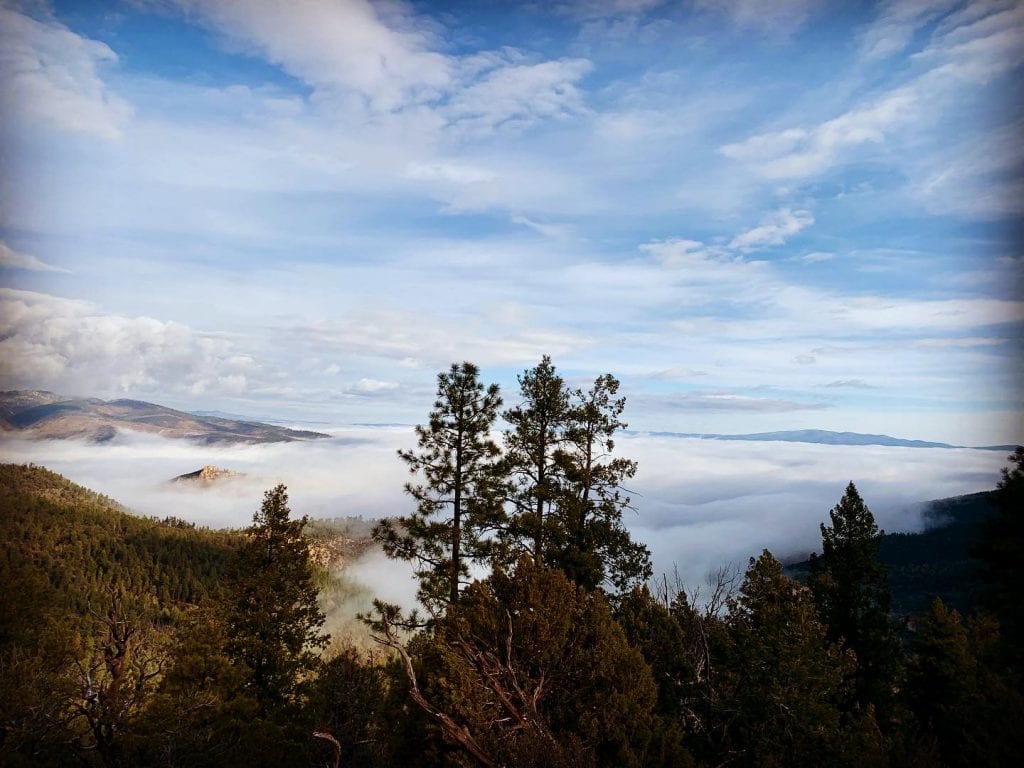Current work in wildlife, rivers, public lands, and climate
Press Releases
Agency pauses renewal of Canadian mining company’s permit for exploratory mining in southwestern New Mexico over impacts to endangered species
The Mogollon Project site, near Silver City, NM, is in the heart of the Greater Gila region and includes lands where threatened Mexican spotted owl and Gila trout have been documented. MMD’s notice comes on the heels of the Biden administration’s long-awaited release of their mining reform recommendations from the Interagency Working Group on Mining Laws, Regulations, and Permitting (IWG), a task force assigned to create a road map to securing the domestic supply chain of the minerals needed for the energy transition.
The IWG’s report gestures at the kind of comprehensive mining reform needed to ensure that we don’t simply transition from one extractive, exploitative, polluting energy source to another. And even though MMD did right by imperiled species and concerned communities this time, the on-the-ground reality of projects like Summa’s is that communities and wildlife are more often than not abandoned by the agencies charged with enforcing statutes and regulations. If meaningful mining reform is to be achieved, the administration must demonstrate a commitment to deep listening and to reimagining systems and structures in ways that don’t only generate profit for a few.
“The mining industry must have had the biggest seat at the table while conservation interests had the foot stool,” said Bob Moore, longtime Mogollon resident, about IWG’s report. “It’s telling that the hard rock industry still retains its supreme access to all lands. Instead of drawing lines in the sand to guarantee protection of environmentally sensitive areas, a tsunami is about to be unleashed, washing away any hope for real protection of endangered species.”
In addition to the immense potential ecological impacts posed by Summa’s exploratory pursuits, and any large-scale future mining that may follow, there are irrevocable cultural assets under threat from their activities. Summa Silver’s exploratory drilling operations continue to occur on sites sacred to the Chiricahua Apache Nation.
“The IWG’s “strong support” for “stronger consultation” with Native nations whose ancestral homelands are targeted by Big Mining falls far short of the United States’ obligation under customary international law to ensure that mining firms obtain free, prior, and informed consent before commencing extractive operations on Native lands,” said Bill Tooahyaysay Bradford, Ikegee Nant’an (Vice Chief) and Beh Goz Ani (Attorney General) for the Chiricahua Apache Nation. “As the Biden Administration well knows, Native nations, from the San Carlos Apache at Oak Flat to the Chiricahua Apache Nation at Mogollon to the Paiute-Western Shoshone at Thacker Pass, almost universally oppose mining within their homelands. Consultation, no matter how robust, is a smoke screen allowing the U.S. to maintain the pretense that it upholds its trust responsibility to Native nations. The IWG’s “engagement” proposal is a cynical ploy to curry public favor for undertaking what appears to be a partnership with Native nations to spur a future green economy. In truth, it is just the perpetuation of a long U.S. government partnership with international mining firms that will continue to perfect the theft of Native lands, the destruction of sacred sites, the despoiling of the environment, and the degradation of Native sovereignty.”
Summa’s exploratory drilling operations are taking place just a few miles from the boundary of the Gila Wilderness, this country’s first designated Wilderness. 2024 marks 100 years since the Gila Wilderness gained Wilderness status through the efforts of the visionary conservationist Aldo Leopold. The Greater Gila region is known for its exceptional biodiversity, hosting more species of birds and mammals than any other region in the Southwest, including the only population of Mexican gray wolves. The Greater Gila is home to over 200 rare plant and animal species, with over 30 listed as threatened or endangered.
“I appreciate that MMD is doing their job, and that the administration is at least making a nod towards mining reform,” said Leia Barnett, Greater Gila New Mexico Advocate with WildEarth Guardians. “But the truth is, Tribes can’t wait. The land, water, ecosystems, and frontline communities can’t wait. We need durable, meaningful laws enacted now to insure the people and wild things that have suffered at the hands of extractive industry for too long have a meaningful say in how lands are managed, before mining companies are given carte blanche to public lands under the false claim of ‘greening’ the economy.”

Photo: WildEarth Guardians
###